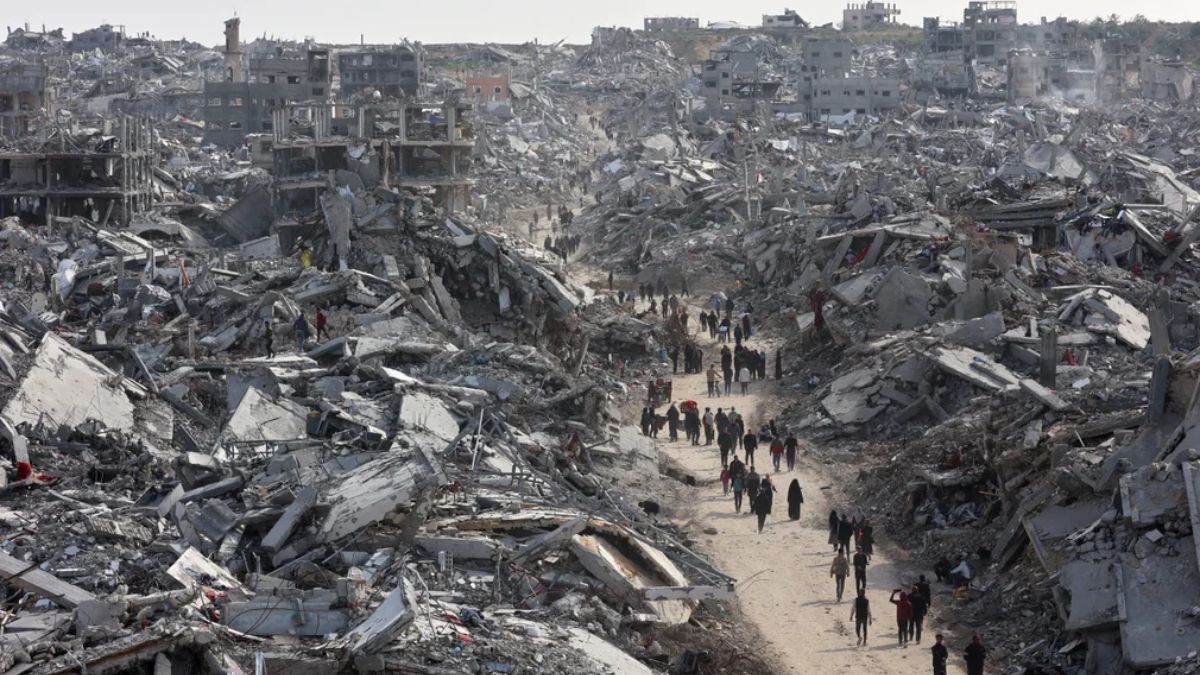Private American security contractors would oversee the second phase of the ceasefire in the Gaza Strip, according to a report.
As per the three-phase Israel-Hamas deal reached earlier this month , the 42-days-long first phase of the deal is currently in effect in which Hamas is supposed to release 33 hostages in lieu of hundreds of Palestinian prisoners released by Israel. In the second phase, the war would end permanently and displaced Gazans would be allowed to return to their homes. The questions of reconstruction and post-war governance would be addressed in the third phase.
The New York Times has reported that private US security contractors would oversee the second phase of the ceasefire in Gaza.
The private contractors would be in charge of securing the transit of Palestinians, according to The Times.
Of the 2.1 million pre-war population of Gaza, nearly 1.9 million persons were displaced and forced to shelter largely in southern Gaza during the war . In the second phase of the deal, they would be allowed to return to their homes in northern Gaza. Israel has set up an enclave in Gaza that essentially cuts the strip in northern and southern halves, Netzarim Corridor, that displaced Palestinians would cross to go to their homes in northern Gaza.
The Times has reported that private contractors would be in charge of managing the Netzarim Corridor and screening Palestinians returning in vehicles to ensure that no weapons or terrorists cross from southern Gaza into northern Gaza , as per The Times.
Impact Shorts
More ShortsOverall, three private companies would be deployed, two Americans and one Egyptian, with separate functions, as per the newspaper.
While one company, Safe Reach Solutions, will oversee operational management of the crossings, the two other companies that were not named will handle actual screening, a source told the newspaper.
There are a lot of uncertainties around this mechanism. Firstly, it is not yet clear who would fund these contractors. Secondly, the timeline is also not clear.
The Times reported that documents related to the Israel-Hamas deal say contractors would take up duties as early as Saturday, but it is not yet clear when they would actually assume their role in Netzarim Corridor.
Thirdly, it is also not clear whether this is a temporary arrangement for the duration of a ceasefire or part of a post-war governance plan for Gaza.
The Times reported two officials as saying that Israel hopes that private contractors would “eventually form the nucleus of a larger international force” backed by Arab states like Saudi Arabia and the United Arab Emirates that will run Gaza in the future. While the international community has been open to assisting the reconstruction and post-war governance of Gaza, much of the international community, including the United States, have said the Palestinian Authority (PA), the de facto Palestinian government that partially governs West Bank under Oslo Accords of 1993, should be majorly involved .
Even though Israeli Prime Minister Benjamin Netanyahu has long rejected the role of PA in post-war Gaza, the Israeli government appears to be relaxing the stance in recent days. Earlier this week, senior Israeli officials confirmed that the PA was jointly managing the Rafah crossing at the Egypt-Gaza border with Israeli authorities and said that a reformed PA may very well have a role in Gaza in the future.


)

)
)
)
)
)
)
)
)



